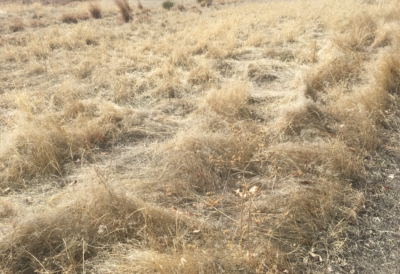Cheatgrass Indentification & Description
Cheatgrass Noxious Weed
Cheatgrass is a noxious weed that when found in unwanted areas must be attended to immediately due to it’s ability to spread incredibly fast. The weed is able to heavily impact local wildlife as it is able to displace some native plants in just a matter of days. Worst of all there’s no real location where Cheatgrass really struggles to survive, it can invade any grassland communities although it  thrives in disturbed areas. Cheatgrass is a collective term for several annual brome species known for early spring emergence and ‘cheating’ other vegetation out moisture and nutrients.
thrives in disturbed areas. Cheatgrass is a collective term for several annual brome species known for early spring emergence and ‘cheating’ other vegetation out moisture and nutrients.
How Can I Identify Cheatgrass?
Firstly Cheatgrass is a winter annual weed, this means that it can only be found between fall and spring / early summer. It reproduces by seed, flowers March though May.
Cheatgrass is typically up to 30 inches tall with a fairly thin stem. Possibly it’s easiest to identify feature is the weed’s crooked head of seeds hanging down from near the top of the stem. In addition to the physical shape of the grass it can also be identified by it’s colors. Leaves of Cheatgrass appear to be a deep, dark green but they can also sometimes feature a shade of purple which is what sets them apart from other similar looking species. Although this color does vary depending on the time of the year. As the grass matures the original green and purple combination tends to morph into a yellow to brick red color.
There are about 300 seeds per each plant which stay viable in the soil for two years.
If you think that you have a case of cheatgrass it’s important that you control it in order to protect native species and local wildlife. Please get in contact with SprayTech as soon as possible to discuss how we can help you control this destructive weed.


Comments are closed.